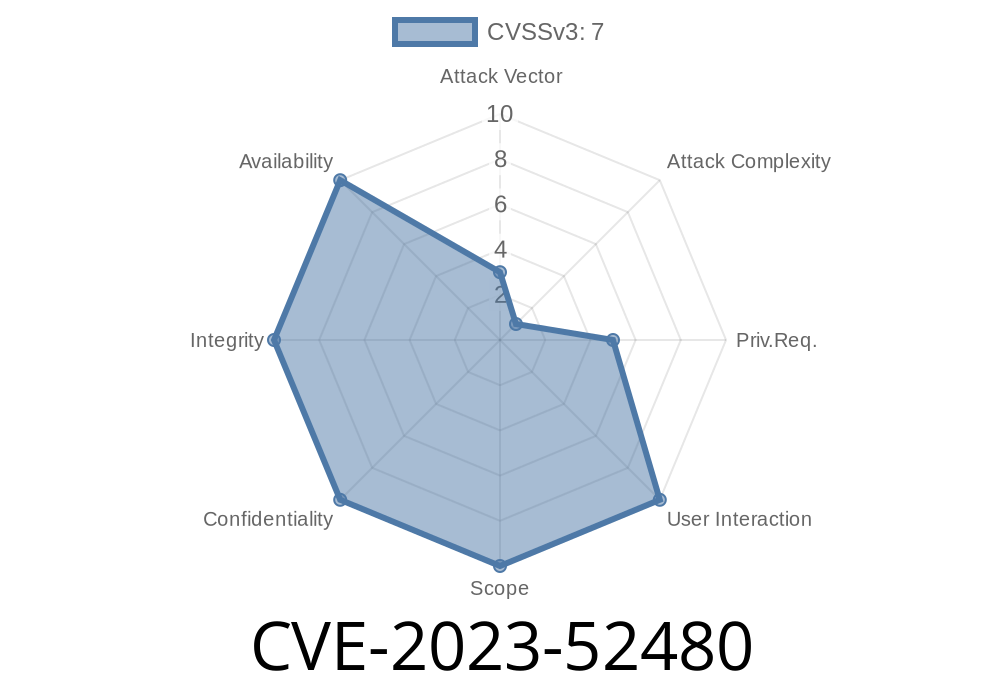On December 27, 2023, a new vulnerability affecting the Linux kernel's SMB server, KSMBD, was disclosed and fixed. Identified as CVE-2023-52480, this issue revolved around a race condition between session lookup and session expiration, which could allow an attacker to trigger a use-after-free (UAF) bug, potentially leading to a kernel crash or, under certain circumstances, even code execution.
This guide breaks down the vulnerability in simple language, shows the race through code and diagrams, shares relevant patches, and provides links for those wanting all the technical details. This is an exclusive, practical explanation for Linux sysadmins, security folks, and curious tinkerers.
What Is KSMBD?
KSMBD is a kernel module added to Linux to provide SMB (Server Message Block) file sharing, commonly used by Windows systems for networking. It allows Linux servers to serve files to Windows computers efficiently. Security in KSMBD is critical since it handles remote file access.
The Race
KSMBD maintains a list of client sessions. When a client connects, a session object is created. When it disconnects or times out, this session is destroyed. However, there was a race condition:
Thread A: Tries to use the now-freed (dangling) pointer.
Result: Use-after-free! This can be exploited for kernel panic or, worse, arbitrary code execution.
Timeline of the Bug
// Thread A
sess = xa_load(&conn->sessions, sess_id); // Finds session pointer
// Context switch happens here --
// Thread B
xa_erase(&conn->sessions, sess->id); // Removes pointer from sessions list
ksmbd_session_destroy(sess); // Frees memory for sess (kfree(sess))
// Back to Thread A
sess->last_active = jiffies; // Oops! Using freed memory (UAF)
The above is an extremely dangerous pattern in any kernel code, especially one exposed to the network.
The Patch and Its Fix
Maintainers fixed this by adding a read-write semaphore (rwsem) to protect session lookup and expiry operations. Now, deleting or looking up a session can't happen simultaneously. Only one thread can modify the sessions list at a time; others must wait.
The Patch (Excerpt)
diff --git a/fs/ksmbd/smb2pdu.c b/fs/ksmbd/smb2pdu.c
+ /* Add session lock */
+ DECLARE_RWSEM(session_lock);
struct ksmbd_session *ksmbd_session_lookup(...)
{
+ down_read(&session_lock); // Acquire read lock
sess = xa_load(&conn->sessions, ses_id);
...
sess->last_active = jiffies;
+ up_read(&session_lock); // Release read lock
return sess;
}
void ksmbd_expire_session(...)
{
+ down_write(&session_lock); // Exclusive write lock
xa_erase(&conn->sessions, sess->id);
ksmbd_session_destroy(sess);
+ up_write(&session_lock);
}
This change means you can't simultaneously look up and destroy a session - preventing use-after-free and riding out the race condition.
If you run KSMBD (on Linux 5.15+), a remote client could crash your server, possibly exploit more.
- If you’re *not* running the kernel KSMBD server, or not exposing file shares, you aren’t affected.
Exploit Details
- An attacker could flood the server with session creates and disconnects, causing race conditions. Carefully timing the session lookup and expiration could lead to arbitrary kernel memory access, which is a typical stepping stone for privilege escalation or root exploits.
How to Patch
- Update your kernel to the latest stable version with the patch (committed on Dec 27, 2023), or apply the patch manually if you build your own.
- Disable KSMBD if it is unnecessary (use Samba in userspace if you don’t need kernel performance).
To Check if KSMBD is loaded
lsmod | grep ksmbd
References
- The Patch on Kernel.org
- NVD CVE-2023-52480 Entry
- Related Linux Kernel Security Mailing List Post
Conclusion
CVE-2023-52480 is a classic example of concurrency mistakes in kernel code, amplified by network exposure. The fix is straightforward once you realize the race, but discovering and exploiting it requires skill. Make sure your Linux systems are patched, especially if you use KSMBD!
*Stay safe, and always keep your systems updated.*
Timeline
Published on: 02/29/2024 06:15:46 UTC
Last modified on: 01/13/2025 17:05:39 UTC
